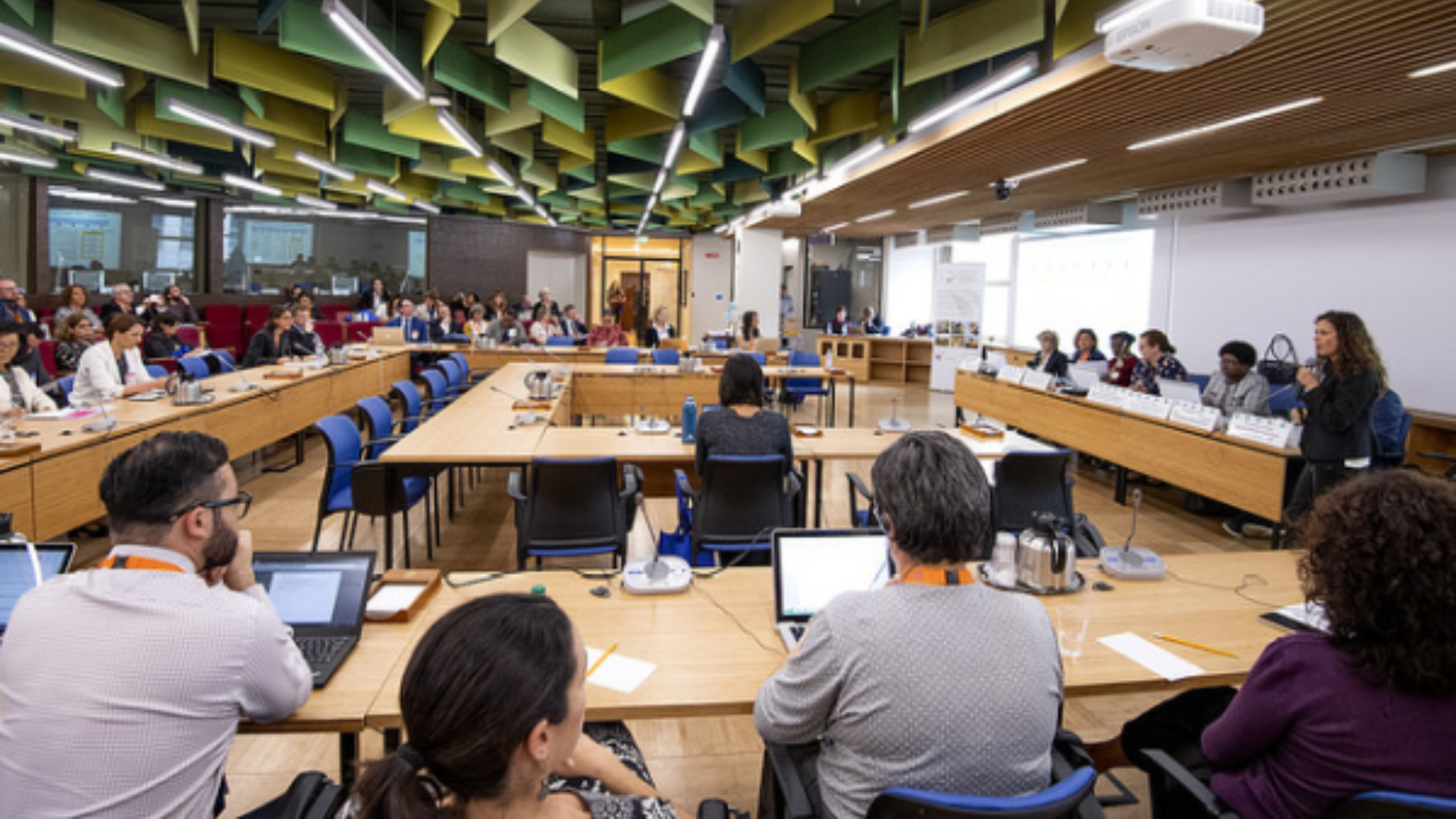The focus of attention at the Committee of Food Security is naturally on food security and nutrition, which under the Agenda 2030 is addressed in the Sustainable Development Goal, SDG2 – Zero Hunger. However, world leaders at CFS increasingly realize the complexity of the challenges. Nurturing a sustainable future requires major transformations across issues and sectors, which can achieved only be building bridges between disciplines, people, and territories. The term to encompass these actions is partnership, which is itself the aspiration of SDG17 – Creating Partnerships.
Links

The focus of attention at the Committee of Food Security is naturally on food security and nutrition, which under the Agenda 2030 is addressed in the Sustainable Development Goal, SDG2 – Zero Hunger. However, world leaders at CFS increasingly realize the complexity of the challenges. Nurturing a sustainable future requires major transformations across issues and sectors, which can achieved only be building bridges between disciplines, people, and territories. The term to encompass these actions is partnership, which is itself the aspiration of SDG17 – Creating Partnerships.
The development of sustainable food systems is also central to achieving the SDGs. In addition to their significance for achieving food security and improved nutrition (SDG2), they support more responsible production and consumption (SDG12), they contribute to poverty reduction (SDG1), and improving health and wellbeing (SDG3), amongst others. Several of the side events organized by members of the Global Donor Platform at 45th Committee on World Food Security in October, in Rome revolved around partnerships and food system approaches. Here are three highlights:
The role of governments and the private sector
Global Donor Platform members DFID and FAO hosted a side event on the first day of the conference on the role of governments, the private sector consumers in shaping food environments for nutrition. The panelists outlined how working together in a food systems framework these actors can optimize the impact of food supply chains and their functions on consumers’ good choices and diets. The discussion focused on the interactions between the public and private sectors around nutrition and the opportunities governments have to create the right conditions for change, for example, by making diverse, nutritious diets more available and affordable.
Dr. Jessica Fanzo, a Senior Nutrition and Good Systems Officer at the FAO explained the complexity of food systems which can also lead to dysfunction in the form of “Food deserts”, where not enough nutritious foods are available to “food swamps”, where over-caloric foods are overabundant. According to Ms. Fanzo “the labelling of food is critical, so consumers can make better choices.” Concerted initiatives and actions taken by governments and businesses in low- and middle-income countries are necessary to support food environments to promote healthy, nutritious diets.
According to Dr Sandy Thomas, the Director of the Global Panel of Agriculture and Good Systems for Nutrition, “we haven’t yet been successful enough in harnessing the power of the private sector to respond to the needs of food systems to support good nutrition.” For Dr. Stefano Prato, the Managing Director of the Society for International Development, we must differentiate between private sector players; there are those willing to engage in different approaches of food production and trade. He emphasized the role of both voluntary guidelines and government regulation. “We should work with businesses willing to walk the path of transition.”


Working together against food crises
On the second day of the conference, the EU and the FAO presented a review of the current food crises situation and of major initiatives to address them, especially the Global Network against Food Crises.
According to the 2018 Global Report on Food Crises, almost 124 million across 51 countries faced crisis levels of acute food insecurity or worse in 2017. In particular, the report highlights the role of conflict as the main driver of acute hunger in 60 percent of cases. The panelists emphasized the need to strengthen collaboration to address food crises between humanitarian and development actors as well as involving peace actors to continue to raise global awareness and commitment. The Global Report itself serves as a first step in enhancing coordination of food security and nutrition analyses by providing a common message for decision-makers and operational agencies. Towards this goal, the “Global Network Against Food Crises” was established by the European Union Commissioner for Development, the Director-General of FAO and the Executive Director of World Food Program, as partners, to improve global coordination for prevention and response to food crises. The side event illustrated how the Global Network Against Food Crises can support global and country level process towards sustainable solutions to food crises by helping to identify priorities to address food crises.

Building consensus on the best way to end hunger
Also on the second day of the conference, the German Federal Ministry for Economic Cooperation and Development (BMZ) and the Bill & Melinda Gates Foundation, together with the International Institute for Sustainable Development (IISD), International Food Policy Research Institute (IFPRI), and Cornell University and the governments of Ghana and Kenya, launched the project Ceres2030.
Within this partnership, the project combines state-of-the-art modelling techniques with research mining of expert evidence to build consensus for the donor community on the best way to end hunger sustainably, with costs and effective solutions. With the recognition that a one-size-fits-all approach will not solve the complex problems at hand, Ceres2030 will evaluate the benefits, costs and trade-offs of agricultural interventions to ensure effective action.
The project’s proactive engagement strategy with policy-makers and the scientific and donor communities is another example of how experts are working together to build bridges between disciplines, people, and territories to work towards food security for all, leaving no one behind. For more information on the launch of Ceres2030, see the link below.

